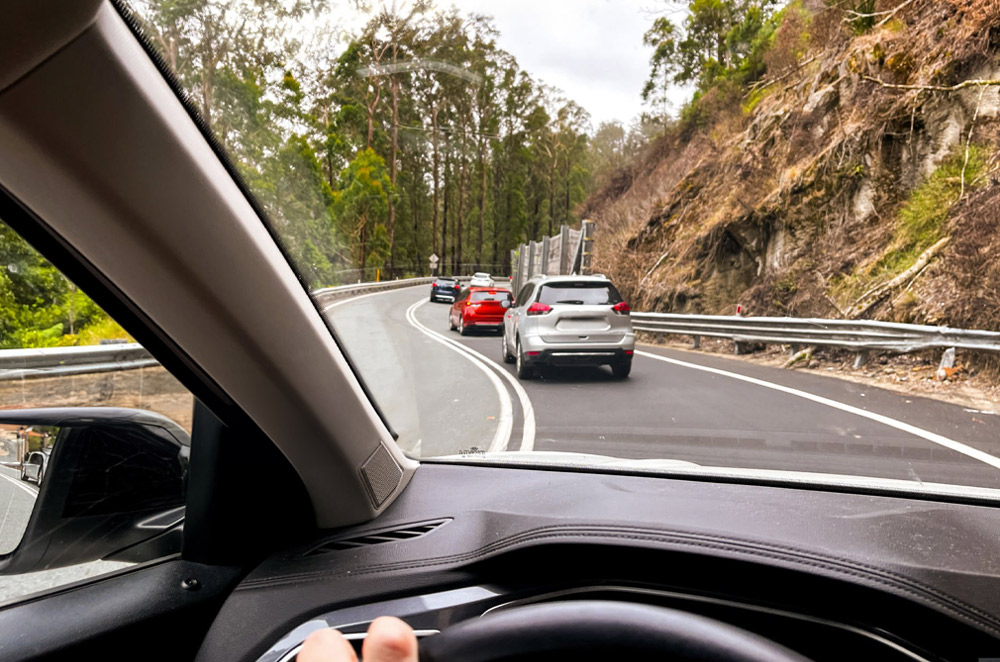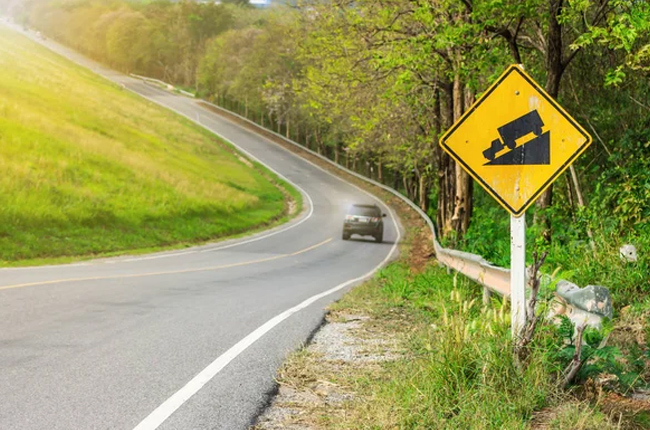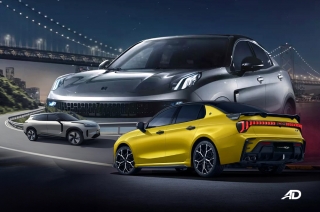
Updated: September 11, 2025
Engine braking has existed for as long as the first automobiles. Back then, cars had rudimentary transmissions, such as the two-speed planetary manual gearbox found on the Ford Model T. As more people learned how to drive, they found clever ways to refine their driving techniques and enhance the overall experience.
Despite its history, many modern drivers are confused about whether engine braking is a good idea for their vehicle. No matter if you drive a manual transmission car or an automatic variant with paddle shifters, engine braking is something you can use for everyday driving. Which leaves us with the question that's asked almost every day: Can engine braking really harm your engine?
What is engine braking?

Before we dive into its effects, we have to be clear on what engine braking is and isn't. Engine braking is when you release the throttle while in gear, effectively using the engine to absorb kinetic energy and slowing down the vehicle. That is as opposed to using the brake pedal and engaging the brake pads to slow the car.
Now, different types of vehicles vary in how engine braking is applied. Let's start with automatics. While engine braking is fairly uncommon for automatic cars, it's possible by using the Low (L) option on the gear shifter. That setting keeps the vehicle in the lower gears, slowing the car down when you release the throttle at higher speeds.
With paddle shifters on an automatic, you can engine brake by downshifting to a lower gear and releasing the gas pedal, allowing the engine to slow the vehicle down without further input. On CVT models, you can engage engine braking by releasing the throttle and putting the transmission in "S" mode. This technique is particularly effective when going downhill and is actually recommended by many auto manufacturers.
The most common cars that use engine braking are manual transmission models. When you release the gas pedal while in gear, this stops fuel injection and closes the throttle valves, greatly restricting airflow, reducing energy, and creating the engine-braking effect.
When will you need to use engine braking?

Utilizing engine braking is helpful when you need to maintain control of your speed or when continuous braking would otherwise be required. For example, when driving on mountain roads such as those in Baguio, where there are frequent elevation changes, engine braking helps reduce the strain on your braking system by minimizing the need for constant pedal braking, allowing the brakes to cool down.
Additionally, engine braking is useful in slippery or wet conditions, as it enables smoother deceleration and reduces the risk of skidding compared to sudden braking with the brake pedal.
Is engine braking a bad idea?

We've established how engine braking functions in different types of vehicles. The question remains: is it safe for your engine? The answer is yes, it is mostly safe, and the notion that it's unsafe is a long-perpetuated myth.
In fact, smart use of engine braking can even benefit your vehicle by reducing wear and tear on the brake pads and rotors. Engine braking can even prevent brake fade by giving the braking system a chance to cool down.
If engine braking can cause any trouble, it's for the other vehicles surrounding you on the road. Be careful when you use engine braking, however, as this act doesn't engage your brake lights and may cause confusion to the vehicles behind you, especially at night. As we mentioned earlier, one of the best times to use engine braking is when going down hills and other steep declines. Overall, engine braking is not an inherently harmful thing to do and can even provide some benefit to your car's braking system.
Latest Features
-
An all-electric future: The Porsche Macan Electric / Featured Article
Porsche’s Macan goes all-electric; it’s a new beast with an electrified heart, yet unmistakably Porsche in performance and spirit.
-
Which Kia should I buy? / Featured Article
We’re here to help you decide which Kia vehicle is best for you, whether it’s a sedan, crossover, or minivan.
-
Why Lynk & Co is a good option for luxury car buyers / Featured Article
Lynk & Co offers premium value for those exploring the luxury market.
Popular Articles
-
Electric Vehicles in the Philippines for under P1 million
Jerome Tresvalles · Aug 19, 2025
-
Top 3 Cars For Every Lifestyle—What Cars Are Right For You? | Behind a Desk
Caco Tirona · Apr 24, 2024
-
5 Tips to Maximize Fuel Efficiency
Jerome Tresvalles · Sep 09, 2024
-
Five driving habits that are draining your fuel tank
Jerome Tresvalles · Jun 24, 2025
-
Can engine braking harm your engine?
Jerome Tresvalles · Sep 11, 2025
-
Do electric cars even need maintenance?
Jerome Tresvalles · Oct 23, 2024
-
Best vehicles for an active outdoor lifestyle
Shaynah Miranda · Jul 25, 2024
-
How to drive different types of vehicle transmissions
May 23, 2024
-
5 easy ways to keep your car interior clean
Allysa Mae Zulueta · Nov 15, 2021
-
How to survive Metro Manila traffic
Earl Lee · Aug 16, 2022




